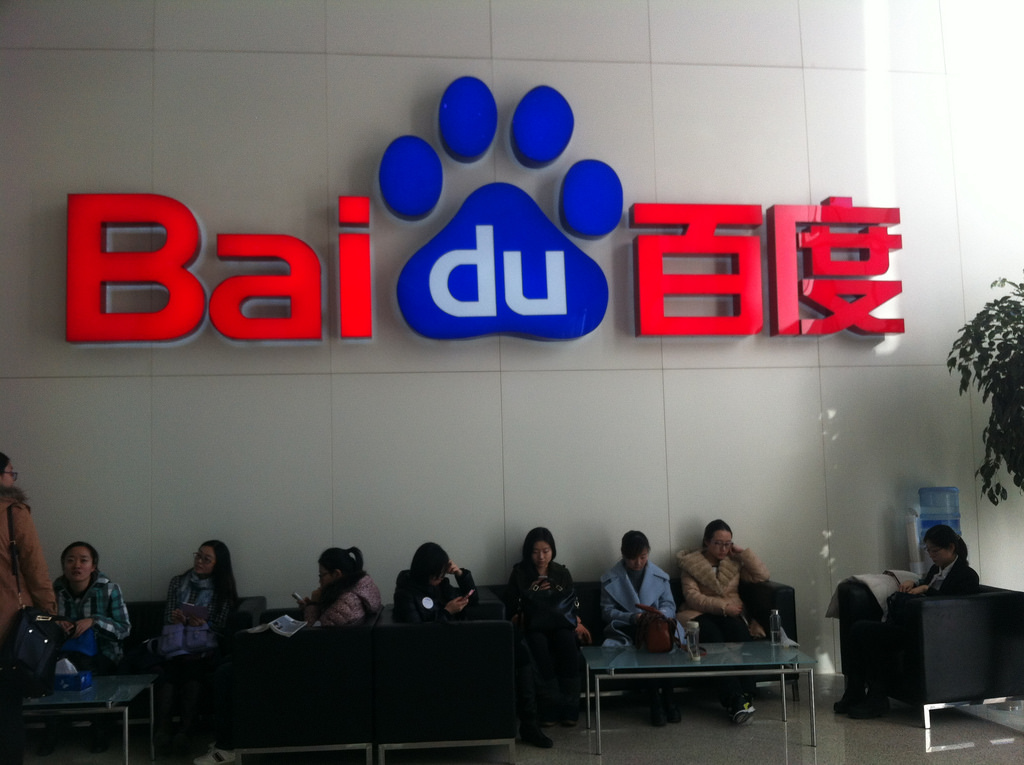"The Apollo 3.0 self-driving bus, run by Apollo 3.0, will soon appear on the roads of China and abroad," said Baidu CEO Robin Li, speaking at the annual Baidu Create 2018 conference.
Buses with a capacity of up to 14 passengers are manufactured at the plant in the south of China. The Apollo autopilot, with which the buses are equipped, refers to the fourth level of autonomy, the SCMP says. The vehicle can fully assume control under certain conditions. Now, 116 companies are working with Apollo, including Jaguar Land Rover.
"The year 2018 is the year of commercialization of unmanned vehicles on the territory of China," the head of the company said. "By the number of Baidu buses that have come down from the production line, it can be judged that the development of autonomous driving has taken a big step forward, ensuring that the entire industry has been raised to a new level, from "zero" to "one".
The start of commercial operation is planned in Beijing, Shenzhen, the new district of Xionguan in Hebei province, the city of Wuhan and Pintane. At first, the buses will be used in China and Japan, Baidu told. The first buses will take to the streets of Japan in 2019 with the assistance of SoftBank, clarifies Bloomberg.
The Chinese company also announced the Kunlun II-technology, which will be used for processing natural languages, for example, for recognizing the voice of the driver.
Next, Baidu plans to release fully autonomous vehicles in partnership with Chinese brands JAC Motors, Chery Automobile and BAIC Motor in 2019.
Last September, Baidu stepped up its investment in its project for the creation of technologies for self-driving vehicles, launched in 2013. The investments come via the Apollo Fund, named after the open-source platform for self-driving vehicles Apollo.
Analysts at Morgan Stanley believe that unmanned vehicles will be widely used in 20 years, and Goldman Sachs analysts predict that such cars - without a steering wheel and with automatic brakes - will be widely distributed by 2025.
Studies have shown that most people assume that they don’t have to do anything but look at the road when they are in such a car. Many of the respondents also believe that they will be able to watch movies, read books, play games, work, type text or browse the Internet.
Some analysts believe that there will be the time when unmanned vehicles will become an integral part of our lives and similar technologies will not surprise anyone. The technologies will eventually improve, giving the person more and more free time, and also bringing significant improvements to our life.
source: techcrunch.com
Buses with a capacity of up to 14 passengers are manufactured at the plant in the south of China. The Apollo autopilot, with which the buses are equipped, refers to the fourth level of autonomy, the SCMP says. The vehicle can fully assume control under certain conditions. Now, 116 companies are working with Apollo, including Jaguar Land Rover.
"The year 2018 is the year of commercialization of unmanned vehicles on the territory of China," the head of the company said. "By the number of Baidu buses that have come down from the production line, it can be judged that the development of autonomous driving has taken a big step forward, ensuring that the entire industry has been raised to a new level, from "zero" to "one".
The start of commercial operation is planned in Beijing, Shenzhen, the new district of Xionguan in Hebei province, the city of Wuhan and Pintane. At first, the buses will be used in China and Japan, Baidu told. The first buses will take to the streets of Japan in 2019 with the assistance of SoftBank, clarifies Bloomberg.
The Chinese company also announced the Kunlun II-technology, which will be used for processing natural languages, for example, for recognizing the voice of the driver.
Next, Baidu plans to release fully autonomous vehicles in partnership with Chinese brands JAC Motors, Chery Automobile and BAIC Motor in 2019.
Last September, Baidu stepped up its investment in its project for the creation of technologies for self-driving vehicles, launched in 2013. The investments come via the Apollo Fund, named after the open-source platform for self-driving vehicles Apollo.
Analysts at Morgan Stanley believe that unmanned vehicles will be widely used in 20 years, and Goldman Sachs analysts predict that such cars - without a steering wheel and with automatic brakes - will be widely distributed by 2025.
Studies have shown that most people assume that they don’t have to do anything but look at the road when they are in such a car. Many of the respondents also believe that they will be able to watch movies, read books, play games, work, type text or browse the Internet.
Some analysts believe that there will be the time when unmanned vehicles will become an integral part of our lives and similar technologies will not surprise anyone. The technologies will eventually improve, giving the person more and more free time, and also bringing significant improvements to our life.
source: techcrunch.com





